
Latest Editions
-
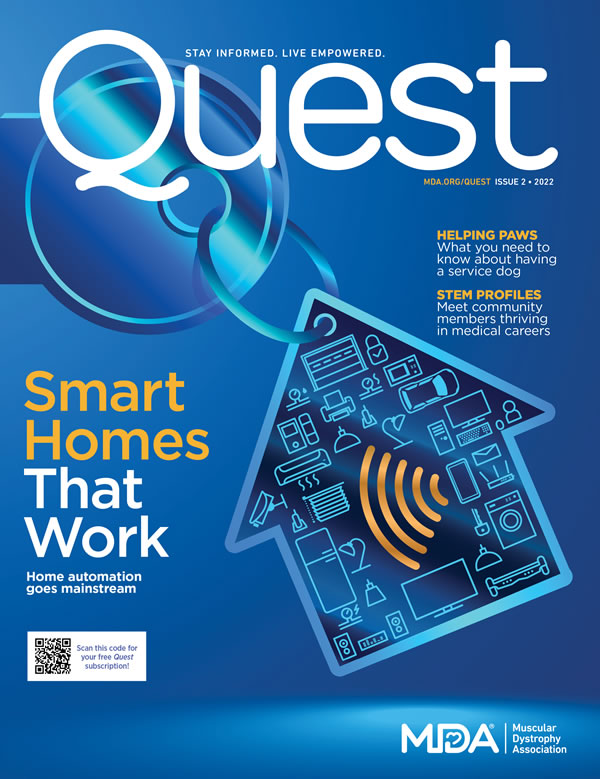 Quest Issue 2, 2022
Quest Issue 2, 2022 -
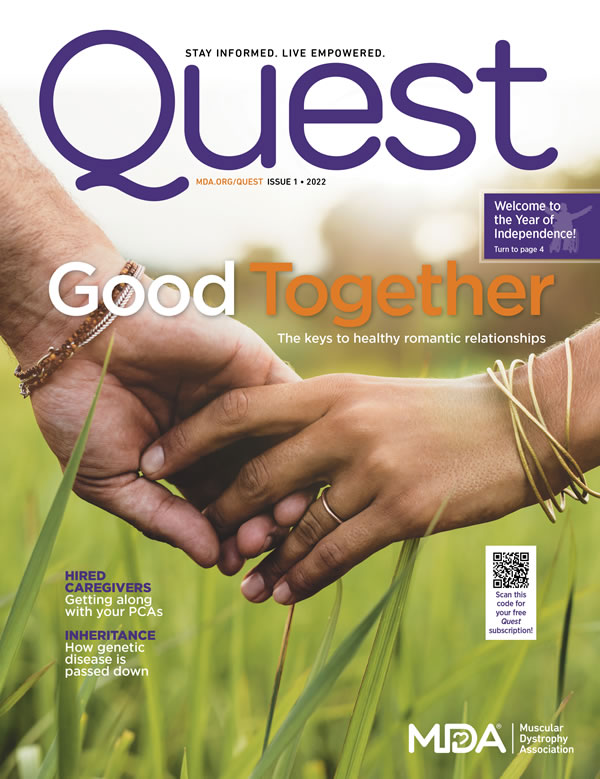 Quest Issue 1, 2022
Quest Issue 1, 2022 -
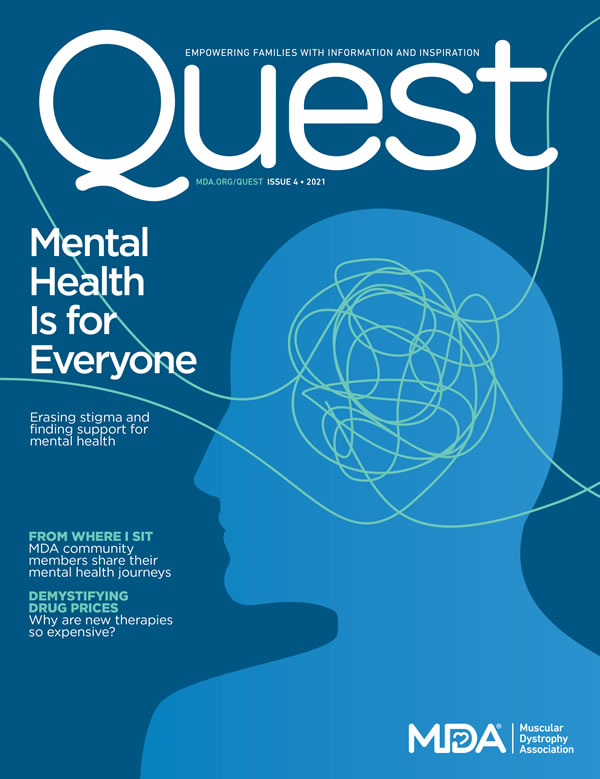 Quest Issue 4, 2021
Quest Issue 4, 2021 -
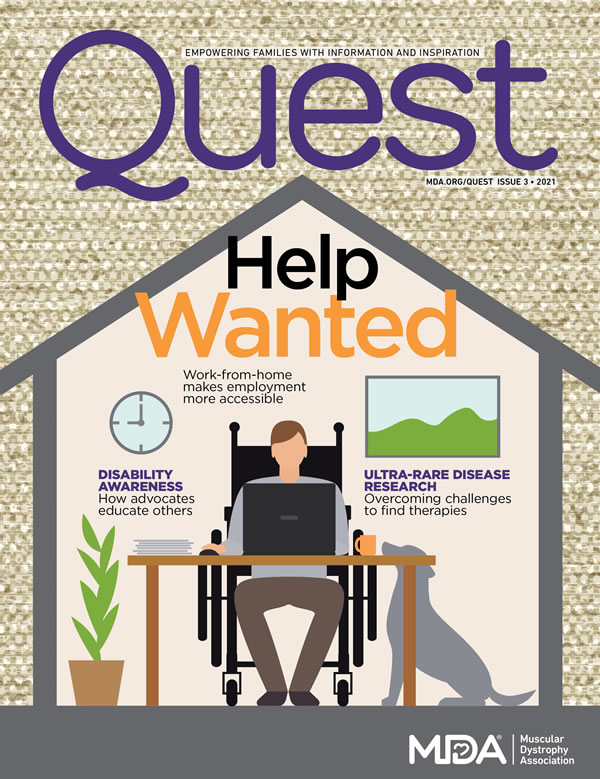 Quest Issue 3, 2021
Quest Issue 3, 2021
Recent Quest Articles
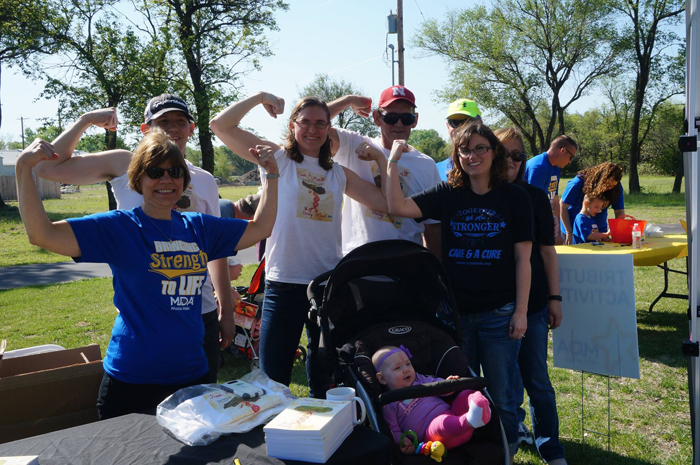
My First MDA Muscle Walk
To be honest, before the 2016 MDA Wichita Muscle Walk, I’d only donated to an organization seeking to find a cure for muscular dystrophy once. I’d grown up as the older sister of a wonderful, unique brother with congenital myotonic muscular dystrophy. Dustin was born when I was three, and I thought that he was just the way he was meant to be, and that I was lucky to have the brother I did.
Read More
Love, Marriage, Science and a Baby Carriage
I’m not going to lie to you: Writing this article is making me sweat. I’m going to talk to you about a topic that changed my life in the most profound, positive way, but I still feel scared to share it. I was diagnosed with myotonic muscular dystrophy (MMD, or DM) when I was 20 years old. I had been dating my now-husband, Cory, for about a year, and I knew that he was the one. While I was head-over-heels and floating on cloud nine, I also struggled with a deep sense of dread and responsibility.
Read More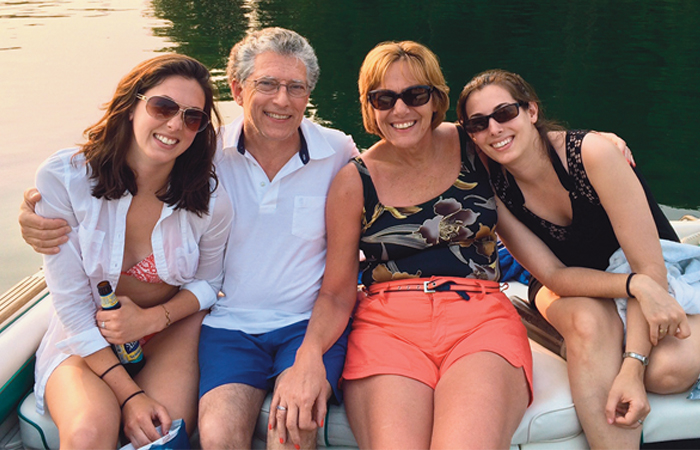
All in the Family
Michelle Murphy, a marketing coordinator from Albany, N.Y., with myotonic muscular dystrophy (MMD, or DM), has been running for as long as she can remember. So when she was diagnosed with MMD in the summer of 2014, she began looking for ways she could use her passion for running to raise money to fight the disease.
Read More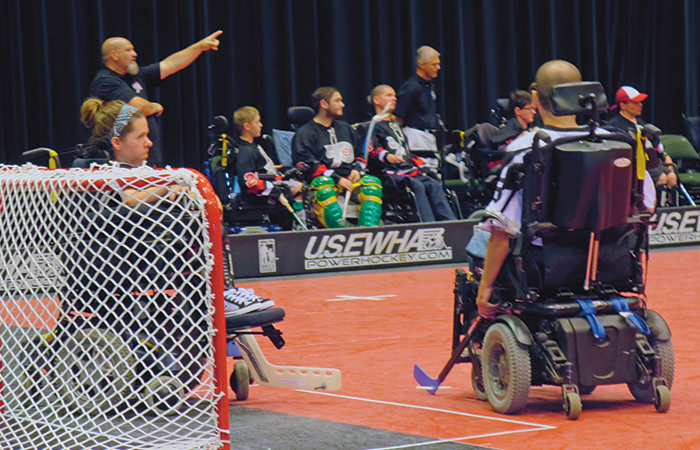
The Competitive Edge
Scott Hatley, 37, began playing adaptive sports soon after he was diagnosed with Duchenne muscular dystrophy (DMD) at age 4. He began with wheelchair basketball, playing with friends in his garage. From there, he went on to adaptive skiing, wheelchair rugby and a few other activities before finding his current passion, electric hockey. E-hockey relies on battery-powered carts that can zoom up to 10 mph and turn on a dime.
Read More
Choice Seating
Manufacturer, brand and model are merely the first choices in the methodical process of wheelchair seating assessment. These days, it’s wheelchair accessories that present the widest selection and biggest potential for enhancing independence and mobility. There are accessories for comfort, attachments for smoother rides and additions designed to maximize independence for people living with neuromuscular diseases.
Read More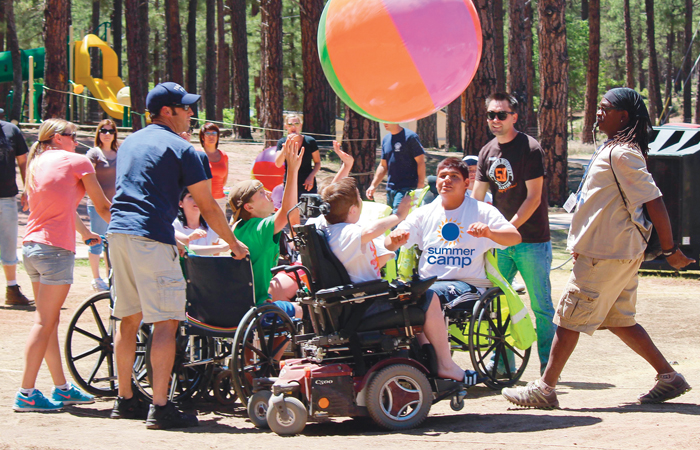
Access MDA Summer 2016
When Jessica Aviles’ son Gabe was diagnosed with Duchenne muscular dystrophy (DMD) in November 2015, it was a complete shock. “I literally knew nothing [about the disease,]” Aviles says. “I had to look it up in the parking lot.”Over the next six months, Aviles went from knowing nothing about DMD to heading the largest Muscle Walk team at the MDA Muscle Walk of Tampa Bay. Early on in her research, Aviles came across MDA and Muscle Walk and decided to get involved so she and her family could join and support MDA’s cause.
Read More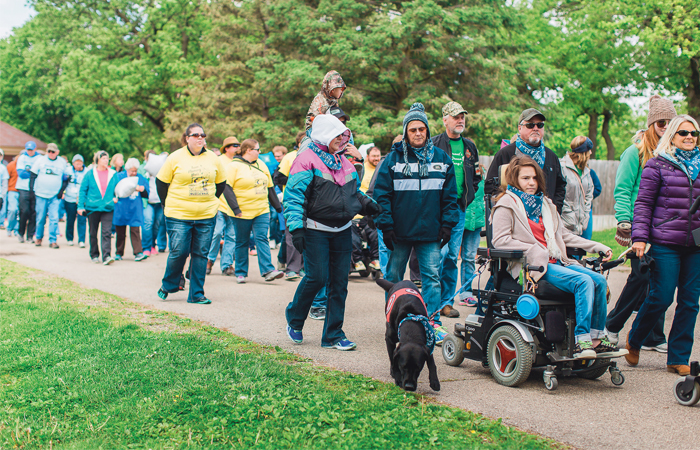
Strength in Numbers: A Walk to Remember
“I am the captain of the Muscle Walk team Hope for Harrison. The team walks in honor of Harrison, my son, who was diagnosed with Duchenne muscular dystrophy in the summer of 2011. The biggest reason I support MDA is that MDA is about living a full life, including working to ensure those living with diseases like DMD live long, full lives.” — Jessie Aldridge, parent
Read More
Progress Now Summer 2016
Results from an MDA-supported multicenter phase 1b clinical trial have shown that treatment with pyrimethamine was safe and well-tolerated and associated with reduced levels of SOD1 protein in people with ALS caused by a mutation in the gene for SOD1.Pyrimethamine is a small molecule approved by the U.S. Food and Drug Administration for treatment in humans of the parasitic infections malaria and toxoplasmosis.
Read More
Living Unlimited Across America
This summer, MDA launched a new campaign called Live Unlimited that was inspired by the stories of individuals and families we serve. Together with our MDA community, we’ve challenged Americans to defy their limits — those we sometimes place on ourselves and those defined by others — and live life to the fullest.
Read More
Quest Readership Survey: We Want to Hear From You
After listening to inspiring individuals with neuromuscular diseases and their families, the Muscular Dystrophy Association (MDA) launched a revitalized brand and new look for Quest Magazine in January 2016. We'd like to know what families think of Quest. Please take a few minutes to fill out the Quest Reader Survey and provide your feedback so we can continue to improve the information and resources we share in each issue.
Read MoreMDA Resource Center: We’re Here For You
Our trained specialists are here to provide one-on-one support for every part of your journey. Send a message below or call us at 1-833-ASK-MDA1 (1-833-275-6321). If you live outside the U.S., we may be able to connect you to muscular dystrophy groups in your area, but MDA programs are only available in the U.S.